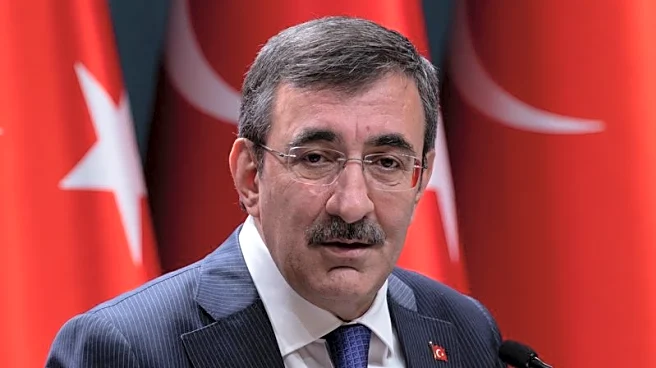What's Happening?
The U.S. Treasury Department has disclosed that Iran has transferred approximately one billion dollars to Hezbollah since the beginning of the year. This financial support is aimed at rebuilding Hezbollah's
military capabilities following its losses in the war with Israel. The funds are being channeled through money-exchange agencies and cash-based businesses, utilizing legitimate financial mechanisms to disguise their origin and destination. The department warns that this mixing of illicit funds with legitimate business activities threatens the integrity and stability of Lebanon's financial system. A U.S. delegation recently visited Lebanon, urging President Joseph Aoun and Prime Minister Nawaf Salam to cut Hezbollah's funding channels as part of efforts to dismantle its weapons infrastructure.
Why It's Important?
The financial support from Iran to Hezbollah has significant implications for Lebanon's political and economic stability. By bolstering Hezbollah's military capabilities, Iran is maintaining its influence in Lebanon's Shiite community, potentially undermining the Lebanese government's attempts to assert sovereign control across its territory. This situation poses a risk to Lebanon's financial system, as the integration of illicit funds with legitimate business activities could destabilize the country's economy. The U.S. delegation's warning highlights the urgency of addressing Hezbollah's financing to prevent further geopolitical instability in the region.
What's Next?
Lebanon faces a deadline through the end of the year to implement required reforms and tighten oversight of money-laundering networks. Failure to stem Hezbollah's financing could lead to increased pressure from the United States, potentially affecting Lebanon's international relations and economic support. The Lebanese government may need to take decisive action to block Hezbollah's financing and smuggling routes to avoid further destabilization.
Beyond the Headlines
The ongoing financial support to Hezbollah by Iran underscores the complex geopolitical dynamics in the Middle East. The shift in smuggling networks to Turkey and Iraq, along with the use of maritime routes and cryptocurrency channels, illustrates the adaptability of Iran and Hezbollah in maintaining their strategic link. This development raises ethical and legal concerns regarding the use of legitimate financial mechanisms for illicit purposes, highlighting the need for international cooperation to address these challenges.











